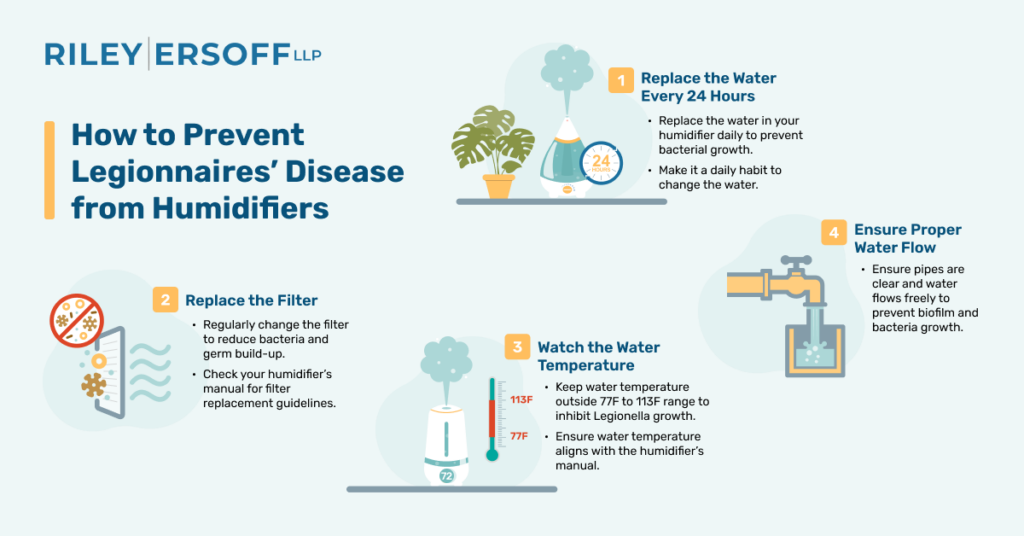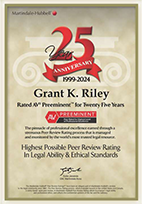Can you get Legionnaires’ disease from a humidifier? In the summer, we blast the air conditioning to stay cold and relaxed. But in doing this, the air loses its humidity and becomes dry.

Dry air is not ideal. Humidifiers release humidity back into the air. They aim to increase the amount of moisture in the air, making it less dry.
Although a popular device, you may have heard that humidifiers have their drawbacks. Can you get Legionnaires’ disease from a humidifier? Yes. It is possible to contract Legionnaires’ disease from your humidifier.
If you or a loved one has contracted Legionnaires’ disease after using a humidifier, contact an attorney today to see what your options are.
Benefits of Humidifier
Dry air has its shortcomings. And living without a heating system in the winter and air conditioning in the summer is not typically an option. Humidifiers can counteract the adverse effects of heating and air conditioning. Thus, humidifiers can benefit you, your family, and your household. Benefits include the following:
- Preventing dry skin,
- Relieving respiratory ailments,
- Preventing snoring, and
- Helping houseplants thrive.
Despite these benefits, there are risks of using a humidifier. One of these risks is the interaction between humidifiers and Legionnaires’ disease.
Legionnaires’ disease is not just a health concern; it’s a legal matter that could entitle you to compensation. Whether it was a faulty humidifier or someone’s failure to maintain it properly, you deserve to know your rights. CONTACT US TODAY
What Is Legionnaires’ Disease?
Legionnaires’ disease is a type of pneumonia caused by a bacteria named Legionella. It is severe, especially for vulnerable individuals like older adults or people with weakened immune systems. Legionnaires’ disease is caused by inhaling the bacteria.
- Fever, which can increase to 104F or more;
- Headaches;
- Muscle aches;
- Cough, which can produce blood or mucus;
- Shortness of breath;
- Chest pain;
- Nausea;
- Vomiting;
- Diarrhea; and
- Confusion.
These symptoms can appear from a 2-10 days after exposure.
Causes of Legionnaires’ Disease in Humidifiers
People can get infected with the bacteria Legionella by breathing in contaminated vapor or tiny water droplets. Because humidifiers release vapor or mist, they can be potential catalysts for Legionella bacteria to spread into the air. People in the room can breathe in the water droplets carrying the bacteria and get infected.
Legionnaires’ Disease Injury? We’ll Help You Pursue the Compensation You Deserve
How to Prevent Legionnaires’ Disease from Humidifiers
The strategies for preventing Legionnaires’ disease from a humidifier are straightforward.
Replace the Water Every 24 Hours
Bacteria will eventually grow in the old water in your humidifier. And then, when you turn it on, the water vapor or droplets will go into the air, and you can inhale the bacteria if it is in the droplets.
So a good strategy is to toss the old water out. You should change the water in your humidifier every day. Make it a habit. For example, every morning when you wake up, change the water. Or right before you go to bed, change the water. As long as you can make it part of your daily routine, you are decreasing your risk of Legionnaires’ disease from your humidifier.
Replace the Filter
Many humidifiers have filters. These filters don’t last. Bacteria and germs can start to build up in the filter. Once there, they can attach to the water droplets in the air and be inhaled by anyone in the room. If the filter is changed regularly, the chance of bacteria and germ build-up is reduced. Check your humidifier instructions to see when the filter needs to be changed.
Watch the Water Temperature
The bacterium that causes Legionnaires’ disease thrives at a temperature of 77F to 113F. Therefore, ensure the water in the humidifier is outside that range. There is less of a chance that Legionnaires’ disease can spread from the humidifier if the water is not at a hospitable temperature. However, always ensure that the water temperature falls within the guidelines in the instruction manual for the humidifier.
Water Flow
Legionella thrives in a water system where the water does not flow or is backed up. Slow-moving water can make biofilm grow, which can allow for the growth of bacteria.
For this, you must ensure all the pipes in your home are clear, and that water can move freely. This can help prevent the spread of not only Legionella but other bacteria as well.
Legionnaires’ Disease Liability
The Centers for Disease Control and Prevention has noted that in the absence of these precautions, the bacteria Legionella can grow in systems like humidifiers. If you or a loved one has been diagnosed with Legionnaires’ disease, you may be able to file a personal injury claim.
Potentially responsible parties depend on the facts of the case. It may be the owner or operator of the establishment or business who used a humidifier that spread Legionella. If they had the duty to maintain and repair the humidifier and failed to do so, they may have breached their obligation to keep the premises safe. If this failure caused the Legionella exposure, they could be held liable. Or the responsible party may be the maker of the humidifier if a manufacturing or design defect caused the Legionella outbreak.
If your claim is successful, you may be entitled to compensation such as:
- Reimbursement of medical and hospital bills,
- Lost wages, and
- Wrongful death.
The total compensation will depend on the facts of each case, and the calculation can be complicated. These claims are complex areas of the law. A personal injury lawyer will be able to investigate the viability of the claim and help you get the compensation you deserve.
Legal Support for Legionnaires’ Disease Victims — Contact a Legionnaires’ Disease Attorney Now
If you or a loved one has been diagnosed with Legionnaires’ disease, we know this is difficult for you. You probably have a lot of questions and are wondering how it happened. Because the use of a humidifier may be the culprit, you need a personal injury lawyer to assess the situation. You may be entitled to compensation for exposure to Legionella.
Our competent, determined, and compassionate attorneys will assess the situation and discuss your options with you. You are not alone.
Contact Riley | Ersoff for a free consultation today.
You might also be interested in:
- Can I Get Legionnaires’ Disease from Showers?
- Can I Get Legionnaires’ Disease from Air Conditioning?
- What is Legionnaires’ Disease and Where Does It Come From?
- Contracting Legionnaires’ Disease in Hotels
- Can You Get Legionnaires’ Disease from Drinking Water
- Can You Get Legionnaires’ Disease from Cooling Towers
- Can You Get Legionnaires’ Disease from Steam Rooms and Saunas
The post Can You Get Legionnaires’ Disease from a Humidifier? appeared first on Riley | Ersoff LLP.

















